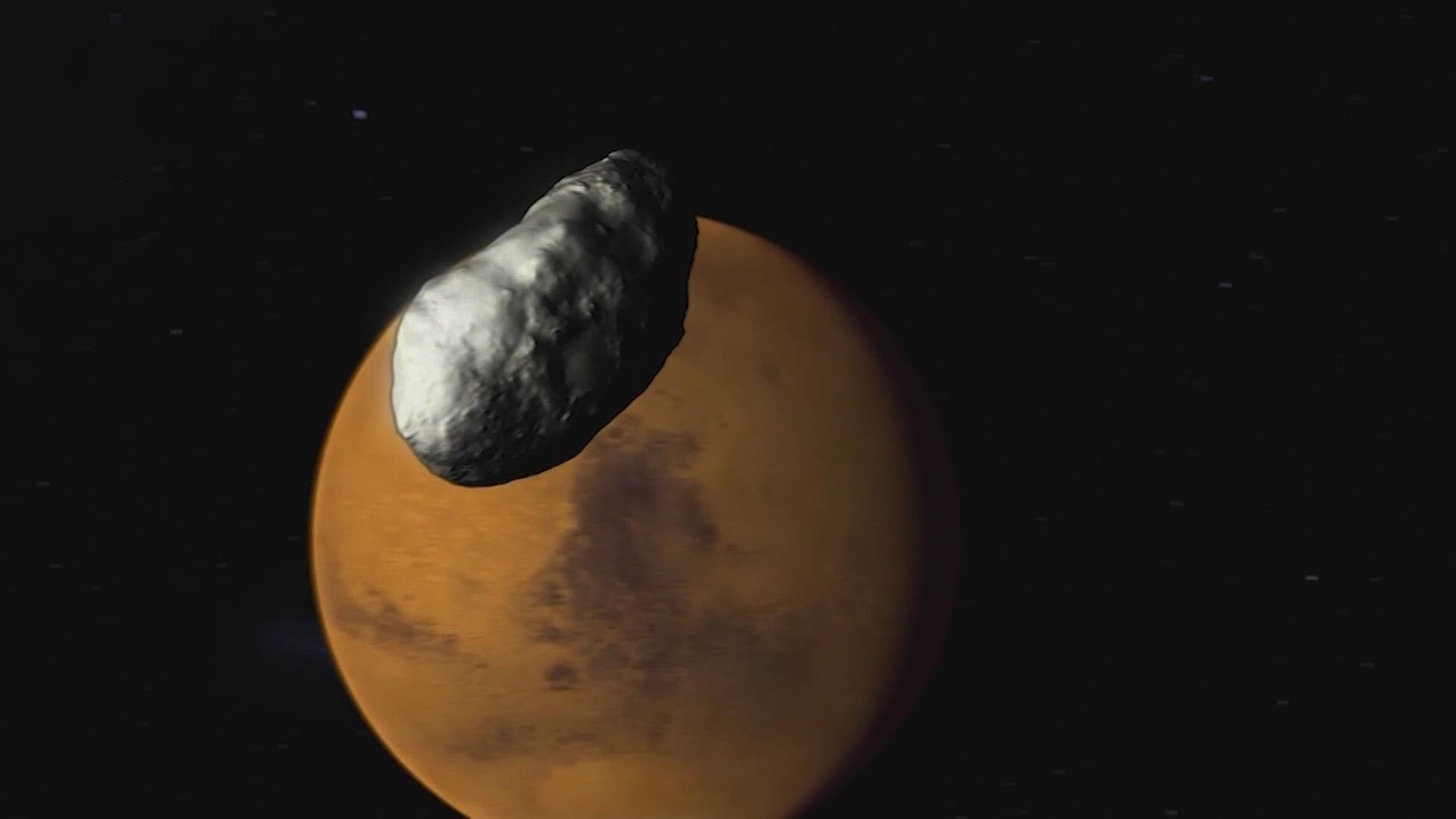HOUSTON — NASA executed an international asteroid sample exchange with the Japanese Aerospace Exploration Agency. It marks the largest asteroid sample curated in Johnson Space Center history.
"It's not me walking around on the moon or anything, but it's a different kind of space exploration where we bring the space to us," said Christopher Snead, a NASA Astro Materials Specialist.
Snead and his team at NASA have successfully brought space to Space City. The tiny piece of an asteroid traveled more than 10 million miles back to earth.
"Just an unbelievable roundtrip journey," Snead said. "These are windows back into time that let us see what happened, how planets were formed and maybe how the original ingredients for life that came to the surface."
In collaboration with JAXA (Japanese Aerospace Exploration Agency), NASA agreed to exchange return samples from each agency's asteroid mission.
Video from the asteroid during JAXA's Hayabusa 2 Project showed how samples were collected.
"These samples will go on for decades and fuel all sorts of research," Snead said. "So, people who haven't been born yet will be using instruments that haven't been invented yet to study these very samples we received."
The sample is so small it's measured in milligrams. Like the size of something you might find in your medicine cabinet.
"The sample is about 500 milligrams, but that's a lifetime worth of research," Snead said.
The research comes at a cost, but when you ask Snead about putting a price on a piece of rock possibly revealing the secrets of the universe, he said it's impossible.
"The samples that we receive are priceless," Snead said. "These are national treasures that are more valuable than anything we would have in Fort Knox. They are just really rare and precious and scientifically will just pay back dividends."
As part of the exchange, NASA is giving JAXA some of its samples. After orbiting the sun twice, the OSIRIS-REx spacecraft will return on Sept. 24, 2023, with pieces of the asteroid Bennu.
"Just under two years and that time flies," Snead said.
It's a historic exchange to get a glimpse of the past for future generations.
"That kind of exchange on that level has never been done before," Snead said. "That's really exciting."

